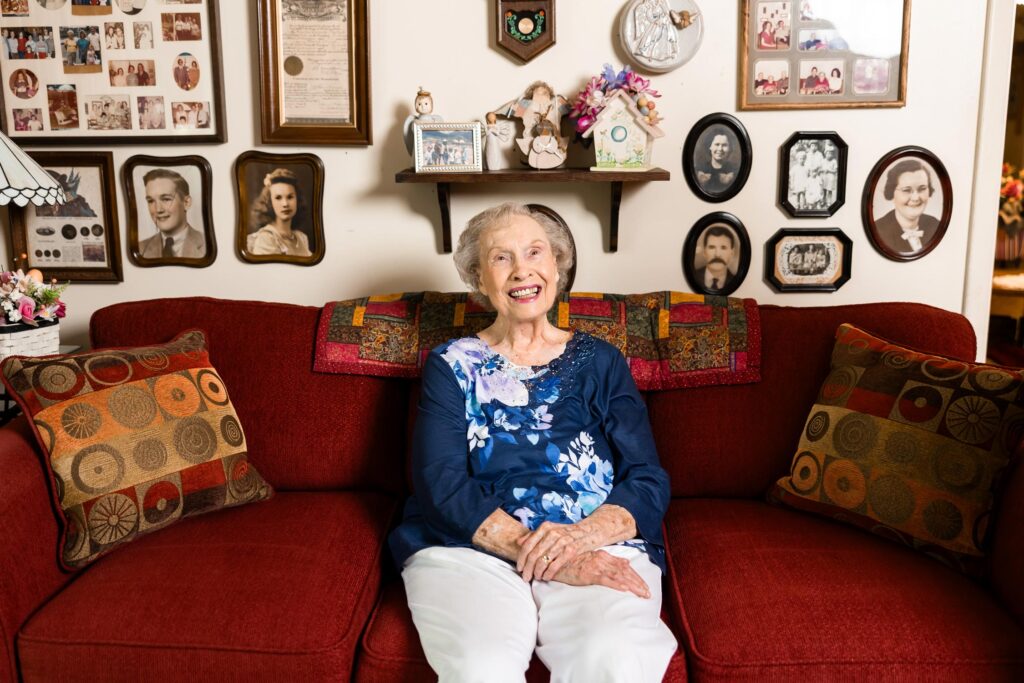Caring for an aging loved one is challenging, but doing it well makes a significant difference. You want them to stay safe, healthy, and happy while managing your own responsibilities. But when it comes to truly understanding how to care for seniors, where do you begin? From planning senior care to addressing health concerns, improving home safety, and managing caregiver stress, we’ll go step by step so you can confidently support your loved one.
Key Takeaways:
- Senior Care Planning: First and foremost, discuss care preferences early. Additionally, plan finances through Medicare, Medicaid, and long-term care insurance. Moreover, complete essential legal documents like power of attorney and living will.
- Types of Senior Care: There are various options to consider including in-home care for daily support, assisted living for help with daily tasks, nursing homes for full-time medical care, memory care specifically for dementia patients, and respite care for temporary support.
- Home Safety for Seniors: To reduce fall risks, install grab bars and improve lighting. Furthermore, use mobility aids and modify homes to enhance accessibility.
- Managing Senior Health: Utilize pill organizers to manage medications effectively. In addition to this, schedule regular doctor visits and monitor signs of decline closely. Encouraging social activities can also prevent depression among seniors.
- Caregiver Support: Be vigilant about signs of burnout; meanwhile, make use of respite care services and seek out support groups when needed.
- Financial Aid: Financial assistance is available through Medicare, Medicaid, VA benefits as well as nonprofit resources that help cover costs.
- Social Engagement: Finally yet importantly encourage games, hobbies volunteering opportunities along with tech usage to prevent loneliness among seniors.

How to Care for Seniors: Planning Ahead
Planning ahead makes senior care more manageable. Begin by talking with your loved one about their future needs. Ask how they feel about aging at home, moving to assisted living, or receiving medical care. Their doctor can explain potential health concerns and the level of care they might require.
Financial planning for elderly medical care is also important. Senior care can be expensive, with costs varying based on needs. Create a budget for medical bills, medications, and home modifications. Explore long-term care insurance, Medicare, and Medicaid to manage expenses. A financial planner can provide strategies to prevent unexpected costs later.
Legal documentation is another key step. A power of attorney allows a trusted person to handle financial or medical decisions when necessary. A living will outlines healthcare preferences. Completing these documents helps avoid confusion later.
Some families use family caregiver support services to assist with planning. These programs offer advice, resources, and sometimes financial aid.
If your loved one chooses to age in place, home modifications might be needed. Installing ramps, grab bars, and improved lighting can make daily life safer.
Planning early allows for smoother transitions and also helps avoid rushed decisions.
Different Types of Senior Care
Choosing the right kind of senior care starts with knowing the options. Every senior has unique needs, and their care should reflect that.
In-home care vs. Assisted Living vs. Nursing Homes
In-home care allows seniors to remain in familiar surroundings while receiving assistance with daily tasks like bathing, dressing, cooking, and medication management. It works well for those who need some support while staying independent.
Assisted living suits seniors who need more help but don’t require full-time medical care. These facilities offer meals, housekeeping, social activities, and personal care services such as dressing and bathing.
Nursing homes provide full-time medical care, making them ideal for seniors with serious health conditions that require constant supervision and treatment. Nurses and medical staff are available around the clock.
When choosing between a nursing home and assisted living, assess your loved one’s health, mobility, and independence. Assisted living is a good option for those who are still mobile but need assistance, whereas nursing homes cater to those needing ongoing medical supervision.
Specialized Care Options
Some seniors require more advanced care. Memory care supports those with Alzheimer’s or dementia, offering secure environments and staff trained in memory-related conditions.
Respite care provides temporary relief for caregivers. It can last from a few hours to several weeks and is available through home care services, assisted living communities, and nursing homes.
Finding Affordable Senior Care
Senior care costs vary widely. In-home care is usually billed hourly, while assisted living and nursing homes have monthly fees. Finding affordable care requires research and planning.
Government programs like Medicaid may cover nursing home costs for qualifying individuals. Veterans' benefits can help with long-term care expenses.
Community organizations and nonprofits often provide free or low-cost senior care. Check with local churches, senior centers, and nonprofit groups for potential resources. Planning ahead makes it easier to find suitable and affordable options.
How to Care for Seniors: Home Safety
Falls pose a serious risk for older adults, but small modifications can make a home much safer. Remove loose rugs, keep walkways clear, and use non-slip strips on slippery surfaces. Install grab bars in bathrooms and near stairs, lower water temperature below 120°F (48.9°C) to prevent burns, and add nightlights in hallways and bedrooms for better visibility.
Many seniors rely on mobility aids like walkers, canes, and wheelchairs for stability. Shower chairs and raised toilet seats enhance bathroom safety. Installing a stair lift can help seniors who struggle with stairs.
For seniors with disabilities, home accessibility is essential. Wider doorways accommodate wheelchairs, while ramps replace stairs at entrances. Lever-style door handles are easier to grip than traditional knobs. This guide from AARP offers additional home safety tips.
Creating a safe environment reduces accidents and enhances confidence at home. Check the living space regularly for potential hazards and make any necessary adjustments.
The Best Strategies for Managing Senior Health Conditions
How to Care for Seniors Daily: Managing Medications and Doctor Visits
Seniors often take multiple medications, and missing doses can be harmful. To prevent mistakes, use a weekly pill organizer or a digital medication dispenser with reminders. Setting alarms or arranging caregiver support can help with adherence.
Doctor visits should occur regularly, even if your loved one feels well. Maintain a list of medications, symptoms, and questions to review with the doctor. If traveling to appointments is difficult, consider telehealth services.
Recognizing When a Loved One Needs Professional Care
Signs that a senior may need additional support include forgetfulness around meals, hygiene struggles, or frequent falls. Confusion, skipped medications, or leaving the stove on also indicate potential risks. Emotional changes, like depression or withdrawal, may be signs of increasing need.
Supporting Mental Health in Seniors
Seniors often experience loneliness or depression, which can affect overall health. Encourage them to stay socially active through local clubs, hobbies, or light exercise routines. Activities like reading, puzzles, and music can help maintain cognitive function. If signs of depression appear, consulting a doctor about therapy or medication options may be necessary.
Additional caregiver resources are available through Johns Hopkins Medicine.
Avoiding Caregiver Burnout
Identifying Signs of Burnout
Long-term caregiving can be exhausting. Feeling consistently tired, irritable, or hopeless signals burnout. Physical signs include headaches, trouble sleeping, and body aches. Ignoring these symptoms can lead to serious health consequences.
Seeking Support as a Family Caregiver
Caregivers don’t have to handle everything alone. Local hospitals, senior centers, and churches provide support groups where caregivers can share experiences. Some programs offer counseling and relaxation activities to help manage stress.
Using Respite Care for Relief
Respite care offers a break by having another person temporarily take over caregiving duties. Services range from a few hours to overnight stays. Explore respite care options for flexible solutions that give caregivers time to recharge.
Financial Assistance for Senior Care
Government Programs for Financial Support
Medicare covers short-term home health care but does not fund long-term personal or custodial care. Medicaid helps low-income seniors with nursing home care and some in-home services. The Program of All-Inclusive Care for the Elderly (PACE) supports seniors who wish to stay at home rather than move to a facility.
Veterans may also qualify for Veterans Aid and Attendance (A&A) benefits, which help cover care costs.
Affordable In-Home Services for Low-Income Seniors
The Area Agencies on Aging (AAA) connect seniors with services like in-home care and meal delivery. Nonprofits and senior centers may also offer volunteer caregiver assistance as well.
Planning senior care takes time and thoughtful decision-making. Addressing preferences, costs, and legal matters early can make the path smoother. Exploring care options, improving home safety, and seeking financial aid all help. Caregiving is demanding, but support programs and respite care provide relief. With preparation and the right resources, seniors can enjoy a fulfilling and secure life.
How to Care for Seniors the Right Way
Providing proper care for seniors requires the right resources and support. From in-home care and transportation to caregiver assistance, CareLink is here to help families navigate this journey. Need guidance? Contact us today for expert advice on senior care. Reach out now!





